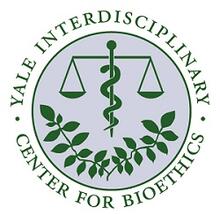“The Ontology of Becoming You,” Technology and Ethics Working Group

INTERDISCIPLINARY CENTER ON BIOETHICS AT ISPS
This month’s presentation examines the importance of understanding how an embryo transforms into a human being. In an earlier socio-political era, one might have considered that this topic was better left in the hands of doctors and parents-to-be. In the U.S. the connection between this subject and woman’s health is playing out in the hinterland, legislative offices and the courts. In overturning 50 years precedent established in Roe v. Wade, newly passed state laws are ripping through the fabric of a woman’s long-established autonomy over her body. Many of us believe that these laws are sponsored by legislators, who don’t have the requisite knowledge about prenatal life, e.g., conception and what follows or might go wrong during pregnancy, to responsibly legislate in this space.
Please email Joe Carvalko to receive an event announcement with the link to join on Zoom.
Our speakers will come at this topic from two directions. In a first part Ms. Thakur will discuss how social constructs have invented false ideas about such phenomena as when a fetal heartbeat manifests. To promote a better appreciation for the prenatal process, Dr. Takahashi will explain how an embryo transforms into a human being. She will introduce us to “Becoming You,” her latest work, in progress, which rather than delving into specific gestation periods, explores the realms of genetics and epigenetics.
Dr. Shizuko Takahashi is an Obstetrics and Gynecologist at Medical Centers in Tokyo, Japan. She also serves as a faculty member at the Department of Biomedical Ethics, Graduate school of Medicine, University of Tokyo, and as a summer faculty at the Yale Interdisciplinary Center for Bioethics. After earning a BA in Fine Arts and Molecular Biology from Reed College in 1997, she pursued medicine and obtained her PhD from the University of Tokyo, Graduate School of Medicine, in 2010. In 2018, she was a fellow at the McLean Center for Bioethics at the University of Chicago. Dr. Takahashi’s research focuses on reproductive ethics, preimplantation genetic testing, pediatric ethics, and cross-cultural bioethics. Her work has been published in BMC Medical Ethics, Lancet, BMJ, and Genetics in Medicine.
Simran Thakur is a 2024 graduate of Quinnipiac University, School of Law. She studied briefly at Trinity College, Dublin, Ireland, concentrating on Counterterrorism, Introduction to the Irish Legal System and International Human Rights. At the University of Connecticut, she earned a BA (2020), with a double major in Human Rights, and in Speech, Language and Hearing Science. During her undergraduate, in collaboration with the Nepali Women’s Global Network (NWGN), she presented at a forum that discussed women’s issues varying from period shaming to gender-based violence to her local Nepalese community. At Quinnipiac Law School, she was the school’s liaison for the Bioethics Interest Group. She strives to learn about the misinformation purported in the mainstream. In addition to her paper, “The Divide Between Abortion Science and Law,” she has written about how misconceptions contribute to food waste and on false narratives in American history. Additionally, Simran has an interest in disability rights, and has written on a supported decision-making model for neurodivergent patients.